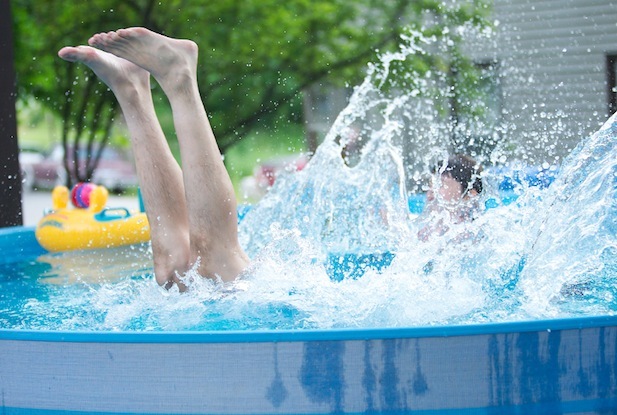Liability for Swimming Accidents: Plaintiffs Have Many Avenues to Recover Damages

Every summer, many people across Canada suffer tragic catastrophic brain and spinal cord injuries as a result of swimming and diving accidents. Compensation can sometimes be obtained for these accident victims through the civil justice system.
What is the legal basis for such a claim? In Ontario, all property owners and occupiers are responsible for taking reasonable care to see that persons on their premises are reasonably safe. This duty is set out in the Ontario Occupiers’ Liability Act and is similar to the usual common law duty of care that one encounters in an ordinary negligence analysis. The duty is based on an objective test of reasonableness.
However, the Act is not the only means of obtaining compensation for a swimming or diving accident victim. Walford v. Pioneer Family Pools (Hamilton) Inc., (2007) 87 O.R. 3d 281 (Ont. C.A.) is an example of counsel pursuing a less conventional legal avenue in an attempt to recover compensation for his severely injured client. Liability in Walford was ultimately based on a breach of the duty to warn and negligent misrepresentation.
The Walfords owned a four-foot above-ground pool. Mrs. Walford purchased a slide for the pool in a private sale. She was not sure that the slide was safe to use with her above-ground pool. Before she installed the slide, she asked several people and organizations that she trusted to confirm whether the slide could be safely installed on her pool.
One of these organizations was her regular pool supply company, Pioneer Pools. She asked employees of the pool store on several occasions whether the slide in question was “right for my four-foot pool,” and those employees advised her that it would be “no problem” and “ok” to use the slide on the pool. Mrs. Walford installed the slide on her pool and the next day her 15-year-old daughter Correena hit her head on the bottom of the pool after going down the slide head first.
Correena was rendered a quadriplegic as a result of the impact with the bottom of the pool. She is permanently unemployable and will require near constant care for the rest of her life.
Correena brought a lawsuit against Pioneer and numerous other defendants alleging negligence. The claim against Pioneer was that their advice had contributed to the slide being installed and therefore contributed to Correena’s injuries.
Things did not go well for the plaintiffs at trial. Mrs. Walford testified at trial that had she been told by Pioneer Pools that it was not safe to use the slide, she would not have used it on her pool. Justice Cavarzan examined the applicable consumer safety guidelines and held that if the safety instructions on the side of the slide had been followed, and if Mrs. Walford’s instructions to her children regarding safe sliding procedures had been followed, then the slide would have been safe to use.
On the basis of that finding, Justice Cavarzan then went on to hold that the answers given to Mrs. Walford by Pioneer Pools’ employees had been truthful and not misleading, because the slide was safe to use if certain conditions were followed. The trial Judge dismissed all claims against Pioneer and ultimately concluded that Correena was 100 percent responsible for her own injuries. He dismissed her claims against the remaining defendants.
The Walfords brought an appeal against Pioneer Pools. In a 2-1 split decision, the court reversed the trial judge’s decision and found liability against Pioneer. It held that the trial judge had made an error in finding no breach of duty by Pioneer for failure to warn and negligent misrepresentation. It further held that the trial judge had misapplied the standard of care.
The court also found that Pioneer’s negligence caused Correena’s injuries because Mrs. Walford had testified that she would not have used the slide if Pioneer had warned her of the dangers of using the slide. It held that Pioneer was an expert in its field and that Mrs. Walford relied on its expertise. Employees at Pioneer chose to answer Mrs. Walford’s questions about the slide, and in doing so they failed to give her adequate warning about the dangers of her new slide.
Walford reminds practitioners in this area that there are numerous avenues available when attempting to recover damages for swimming or diving accident victims. Depending on the facts of the case, these avenues may include the Ontario Occupiers’ Liability Act, breach of contract, the Ontario Sale of Goods Act, product liability, negligent misrepresentation and breach of the duty to warn.
